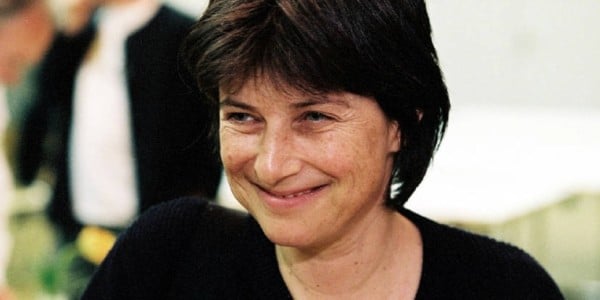
Photo: Courtesy www.egs.edu.
Pioneering Belgian director and artist Chantal Akerman has died, the Guardian reports. While the cause and precise date of her death is unknown, her passing is certainly unexpected. Le Monde reports the death may be a suicide.
Her death has been confirmed by her sister, Sylviane Akerman, as well as Nicola Mazzanti, the director of the Royal Belgian Film Archive, with whom Akerman had worked closely.
An exhibition of her visual artwork and video installations, which will also serve as the premiere of her 2015 film NOW, is scheduled to open at the Institute of Contemporary Arts in London at the end of the month.
Akerman, who was born in 1950 to Polish Holocaust survivors, was a leading figure in both European experimental cinema and feminist filmmaking. In 1975, when she was just 25, she released Jeanne Dielman, 23 Quai du Commerce, 1080 Bruxelles, the groundbreaking film for which she is still best known. It follows the life of a housewife in real time as she completes her daily chores and also prostitutes herself to make ends meet.
Following the film’s release, the New York Times heralded it the “first masterpiece of the feminine in the history of the cinema.”
A still from Jeanne Dielman, 23 Quai du Commerce, 1080 Bruxelles (1975).
Akerman has said that after watching Jean-Luc Godard’s Pierrot le fou (1965) when she was fifteen, she decided on the spot that she would become a filmmaker. At 18, she enrolled in the Institut National Supérieur des Arts du Spectacle et des Techniques de Diffusion, a Belgian film academy, but left after just one semester to make Saute ma ville, a thirteen-minute, 35-mm black-and-white film.
The director made over 40 films throughout her lifetime, many of which address themes of angst, alienation, the Holocaust, the concerns of women, and her Jewish identity. Non-linear narratives are a hallmark of her work.
Directors including Todd Haynes, Sally Potter, and Michael Haneke have cited Akerman as a major influence, while critic J. Hoberman, writing for the Village Voice, called her “arguably the most important European director of her generation.”
She told the AV Club in a 2011 interview, “[Film] can be inventive. You don’t have to tell a story, and you don’t have to please a TV or an audience.” She continued, “What I hate in movies is all those people you need. And then I realize I do better when I shoot by myself.”